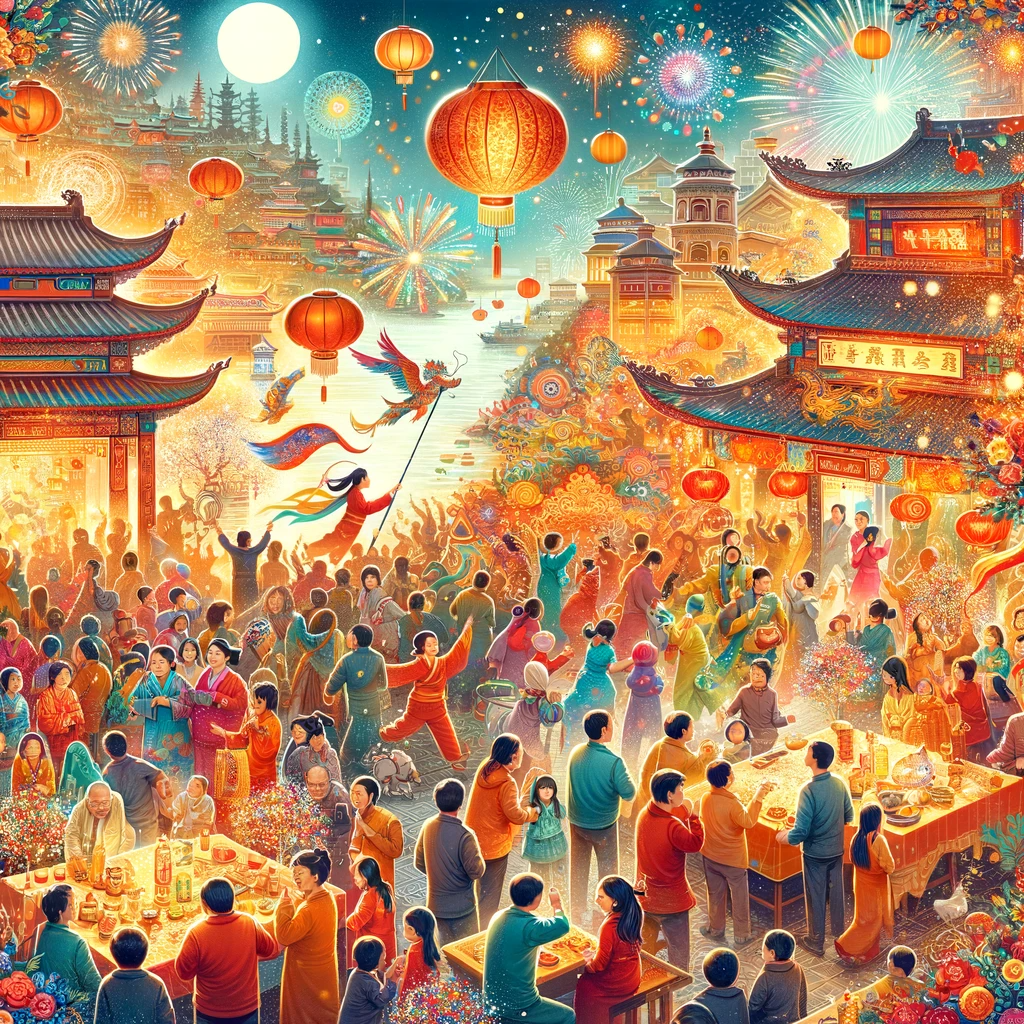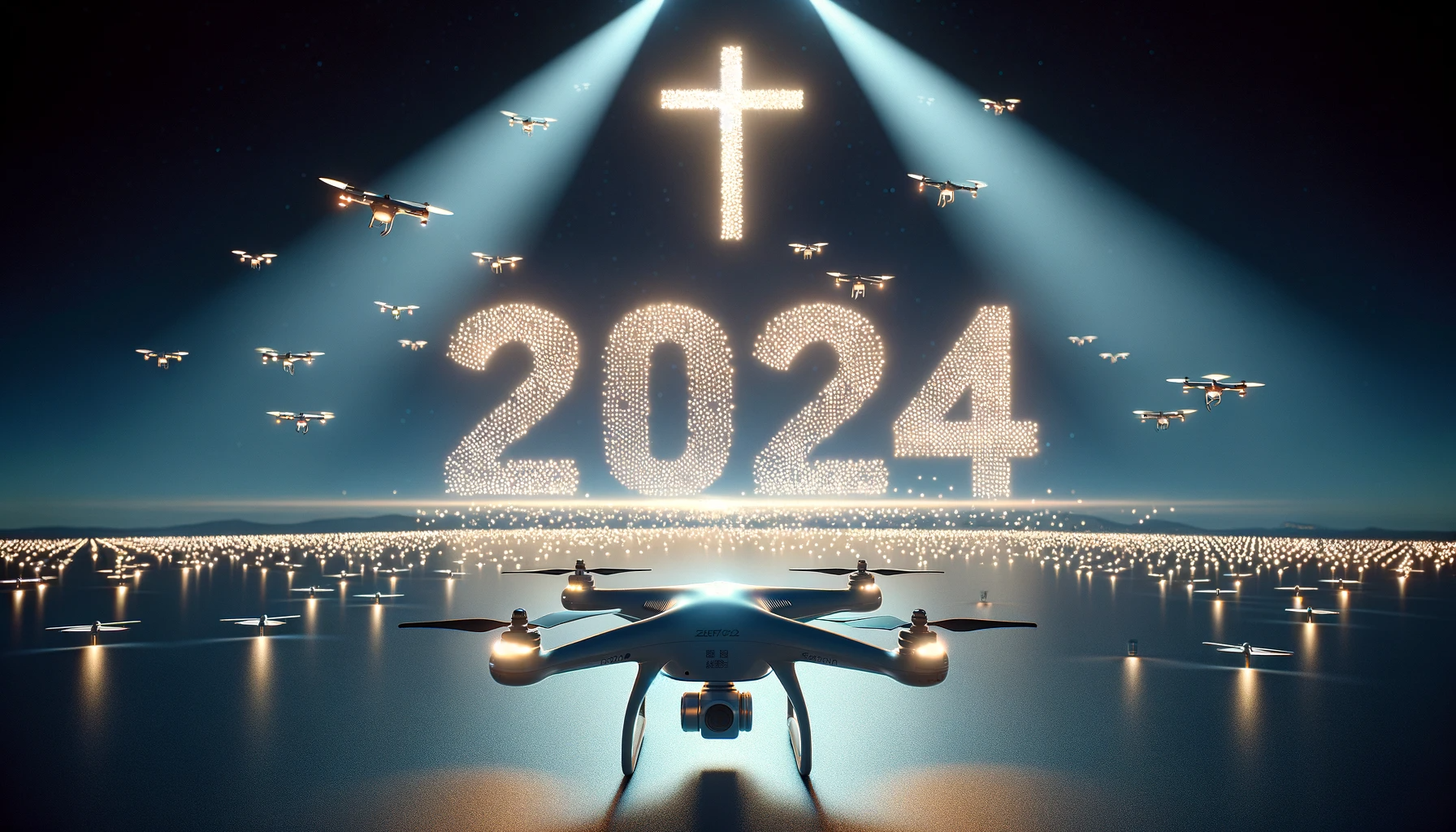Summary
- Origine and Significance of New Year's Eve
- History of the New Year and its Traditions
- Christian Calendar and the Counting of the Years
- New Year in Christian Practice and Faith
- Modern Celebrations and Reflections
- FAQ
The celebration of New Year's Eve and New Year's Day is rooted in rich and varied traditions that span eras and cultures. This article explores their origins, their significance in the Catholic Christian tradition, and how these festivals are celebrated today around the world.
The Origin and Significance of New Year's Eve
Why is 31 December called New Year's Eve?
New Year's Eve, celebrated on 31 December, pays tribute to Saint Sylvester I, Pope of the Roman Catholic Church in the fourth century. His reign coincided with crucial moments for Christianity, including the conversion of the emperor Constantine. This celebration marks not only the end of the year but also the legacy of a leader who shaped the Catholic Church.
Who was Saint Sylvester?
Saint Sylvester I is recognised for having played a significant role in the initial development of the Catholic Church, particularly at the First Council of Nicaea. His contribution to the consolidation of Christian doctrine and the organisation of the Church is fundamental in the history of Christianity.
The History of the New Year and Its Traditions
How the New Year has Evolved through Time
The origins of the New Year date back to antiquity, with celebrations marking the end of winter and the renewal of spring. With the adoption of Christianity as the official religion of the Roman Empire, these traditions were gradually integrated and reinterpreted in a Christian context, symbolising rebirth and hope.
New Year Traditions Around the World
New Year celebrations vary considerably around the world. In Europe, celebrations often include fireworks and family gatherings, while in Asia, traditional festivals such as Chinese New Year mark this time of year with distinct rituals and celebrations.

The Christian Calendar and the Counting of Years
Why is it 2023
The year 2023 in the Gregorian calendar is based on the dating traditionally attributed to the birth of Jesus Christ. Adopted in 1582 by Pope Gregory XIII, the Gregorian calendar replaced the Julian calendar for greater accuracy in calculating time and Christian festivals.
The New Year in Various Cultural Calendars
In addition to the Gregorian calendar, the New Year is celebrated on various dates in other dating systems. The Jewish calendar, for example, celebrates Rosh Hashanah in autumn, while the Islamic calendar, based on lunar cycles, marks the New Year on varying dates each year.
The New Year in Christian Practice and Faith
Why do Christians celebrate the New Year?
In the Christian tradition, the New Year is a time for reflection, spiritual renewal and the celebration of hope. It's a time to remember the teachings of Jesus and to look to the future with faith and optimism.
Is New Year a Religious Holiday?
Although the New Year has religious roots, today it is celebrated by many people as a secular holiday. In the Christian faith, this period is often marked by masses and prayers, reflecting both the religious and cultural aspects of the celebration.
Modern Celebrations and Reflections
How is the New Year Celebrated Today?
In the modern world, New Year's Eve is often associated with festive gatherings, concerts, fireworks and other public celebrations. However, many people also choose to celebrate it in a more intimate or spiritual way.
What are the Recent Trends in Celebrating the New Year?
Recent trends in New Year's celebration include a growing awareness of environmental issues, leading to more sustainable celebrations, as well as an increased use of digital technologies to connect people around the world.

Frequently Asked Questions (FAQ)
Why is 31 December called New Year's Eve?
31 December is called New Year's Eve in honour of Saint Sylvester I, Pope of the Roman Catholic Church, who died on this day in 335 A.D. The date has become synonymous with the end-of-year celebration in many countries.
What's the New Year's story?
The history of the New Year dates back to ancient times, when it was celebrated according to a variety of cultural traditions. It took on particular importance in Roman culture and was adopted by the Christian Church, which eventually fixed the date at 1 January in the Gregorian calendar.
What is the history of Saint-Sylvestre?
St. Sylvester I was pope from 314 to 335 AD and is known to have reigned during the period of Emperor Constantine's conversion to Christianity. His papacy coincided with significant events for the Church, including the First Council of Nicaea.
Which saint to celebrate on 31 October?
31 October is traditionally associated with the eve of All Saints' Day, a Christian festival celebrated on 1 November to honour all the saints. 31 October itself is not specifically dedicated to any particular saint in the Christian liturgical calendar.
What is the saint on 31 December?
The saint of 31 December is Saint Sylvester I, the 33rd Pope of the Catholic Church, who died on this day in 335 AD.
What is the saint on 1 January?
January 1 is traditionally dedicated to the celebration of Saint Mary, Mother of God, in the Catholic liturgical calendar.
Who invented New Year's Eve?
The New Year, as a celebration of the start of a new year, was not invented by one person. It has its origins in ancient practices and has evolved over time. The New Year as we know it today was standardised with the adoption of the Gregorian calendar.
What is the origin of the word réveillon?
The word "réveillon" comes from the verb "to awaken", as these meals were held late at night. Historically, réveillon refers to festive meals on Christmas or New Year's Eve.
Why Christmas Eve?
Christmas Eve, the evening before Christmas, is traditionally celebrated as a time for family gatherings and festivities, marking the anticipation of the birth of Jesus Christ according to Christian tradition.
Why do Christians celebrate the New Year?
Christians celebrate the New Year as a time of renewal and hope. This celebration is seen as an opportunity to reflect on the past year, thank God for his blessings, and pray for the year ahead.
Who created the New Year?
The New Year, as a celebration, was not created by a single entity or person. It has its origins in various ancient traditions. The modern form of the New Year was established with the adoption of the Gregorian calendar.
What are the New Year traditions in France?
In France, New Year traditions include festive meals with dishes such as foie gras, oysters and champagne, as well as fireworks and parties. People kiss under the mistletoe at midnight and exchange Happy New Year wishes.
Why January 1st?
January 1 was established as the first day of the year by the Gregorian calendar, which is widely used throughout the world. The date was chosen for historical and religious reasons, symbolically marking a new beginning.
Which country celebrates New Year's Eve first?
Countries in the UTC+14 time zone, such as the Line Islands (part of Kiribati) and parts of Samoa, are among the first to celebrate the New Year each year.
What year for Jews in 2023?
In 2023, according to the Hebrew calendar, the year is 5783-5784, beginning at sunset preceding Rosh Hashanah, which is usually celebrated in September or October.
Who spends New Year's Eve last?
The US territories of Baker Island and Howland Island, which lie close to the date line in the Pacific Ocean, are among the last to celebrate New Year's.
Which countries don't celebrate New Year's Eve?
Some countries, particularly those with large Muslim populations, may not officially celebrate the Gregorian New Year due to cultural and religious differences, favouring their own religious or cultural calendar.
Is New Year's Day a religious holiday?
While New Year's Eve is mainly considered a secular celebration, it has religious origins and meanings in some cultures, notably in Christianity where 1 January is also the feast of the Circumcision of Jesus.
Conclusion
New Year's Eve and New Year's Eve are times for celebration, reflection and renewal. Rooted in Christian history and tradition, these celebrations continue to evolve, reflecting the diversity and richness of cultures and beliefs around the world. As we welcome a new year, we also embrace hope and the promise of a better future.



 The Mystery of the Five Wounds of Christ: A Profound Exploration of Their Spiri
The Mystery of the Five Wounds of Christ: A Profound Exploration of Their Spiri  Women's religious orders: A heritage of service and education
Women's religious orders: A heritage of service and education  What is Secours Catholique?
What is Secours Catholique?  Jesus' 40 Days in the Desert: A Spiritual Exploration
Jesus' 40 Days in the Desert: A Spiritual Exploration  In un mondo di connessioni costanti e distrazioni digitali, la Quaresima si sta
In un mondo di connessioni costanti e distrazioni digitali, la Quaresima si sta